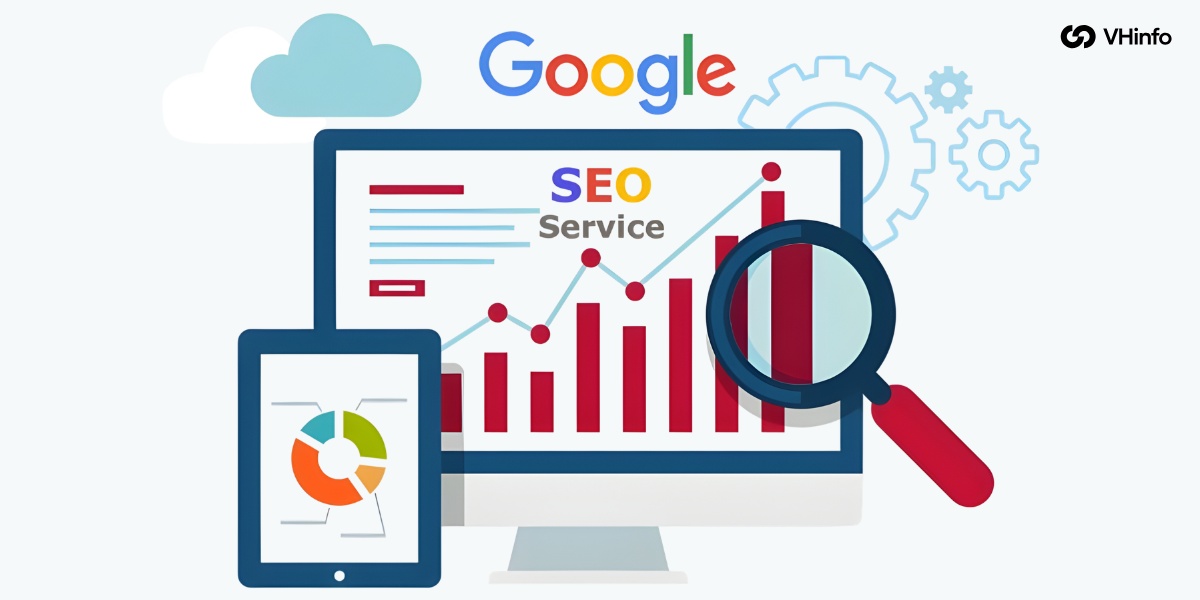In the competitive landscape of digital marketing, link building remains a cornerstone of effective SEO strategy.
For SaaS companies, securing quality links can significantly enhance search engine visibility and drive organic traffic. VH Info, a leader in SaaS link building, emphasizes the importance of high-quality backlinks to improve your site’s authority and search rankings.
What Are Quality Links?

Quality links are backlinks from reputable websites that enhance your site’s credibility and authority.
These links are characterized by their relevance, authority, and the value they provide to users. They are integral to a robust SEO strategy, serving as endorsements from other sites that your content is trustworthy and valuable.
Importance of Quality Links in SEO
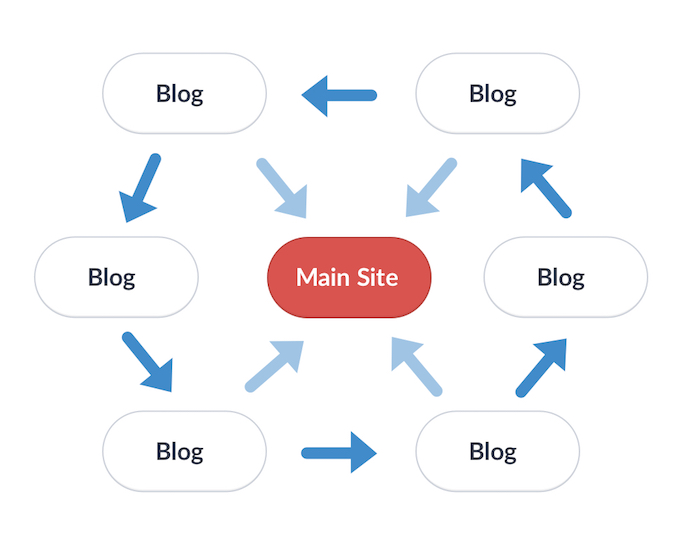
Quality links, particularly in terms of the quality of backlinks, are vital for improving your website’s position in search results. They act as a significant ranking signal, influencing how search engines perceive your site. High-quality backlinks from authority sites can boost your site’s domain authority, making it more likely to appear at the top of search results for relevant keywords.
Characteristics of High-Quality Links

High-quality links possess several key characteristics:
- Relevance: Links should come from sites related to your industry.
- Authority: The linking site should have a high domain rating.
- Natural Placement: Links should be integrated naturally within the content.
- Diversity: A varied link profile with links from different types of content enhances credibility.
What Are the Differences Between a High-Quality Link and a Low-Quality Link?
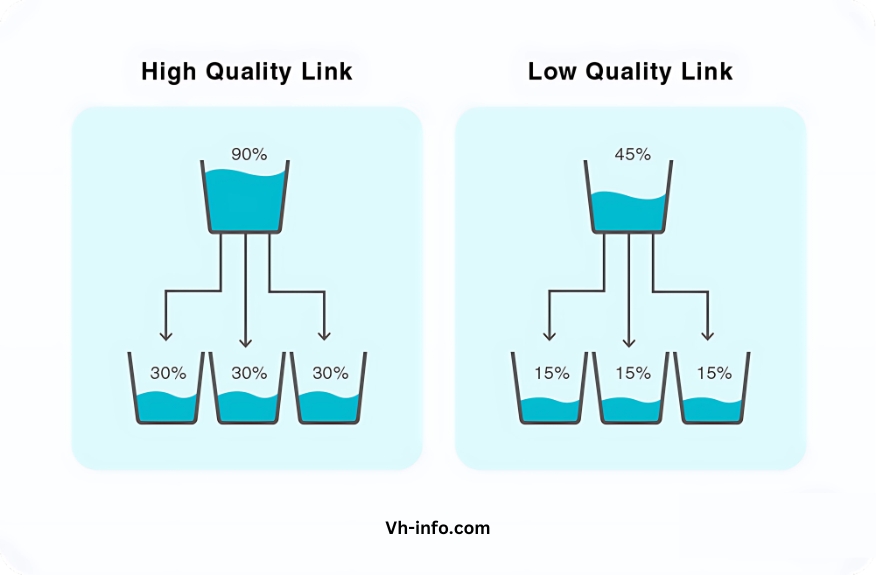
|
Aspect |
High-Quality Link |
Low-Quality Link |
|
Source Authority |
From reputable, high-authority sites |
From spammy or low-authority sites |
|
Relevance |
Relevant to the content and industry |
Irrelevant or unrelated |
|
Placement |
Naturally integrated within valuable content |
Forced or placed in unrelated contexts |
|
Impact on SEO |
Positive influence on rankings |
Potentially harmful, may lead to penalties |
Can the Quality of a Link Affect SEO? If So, How?
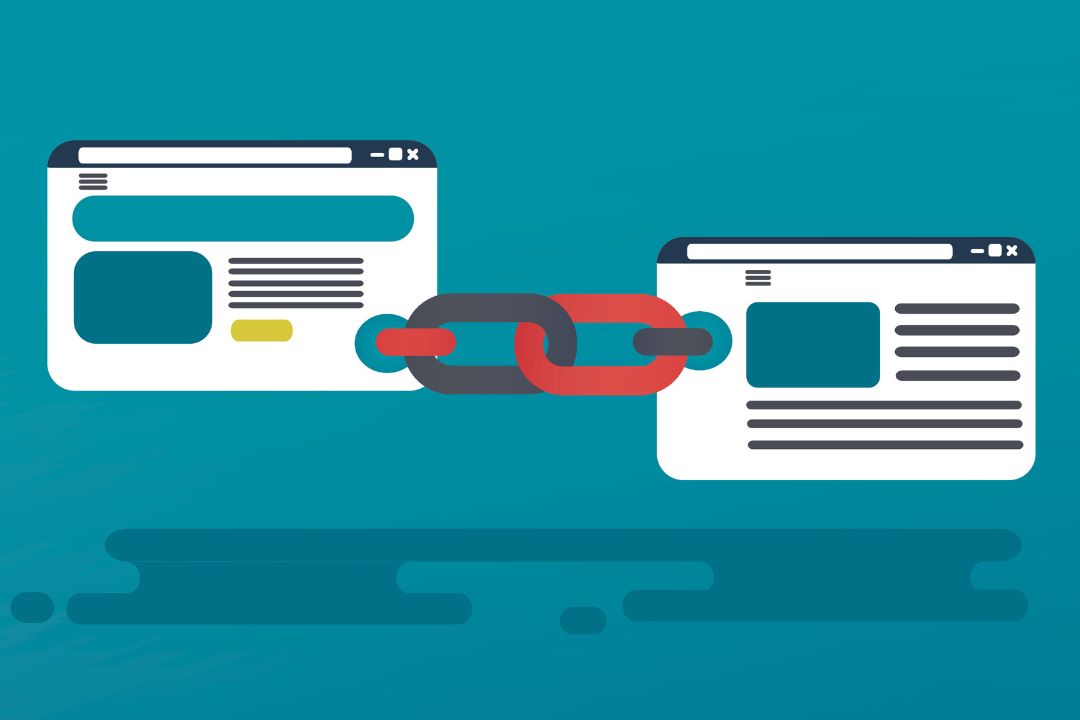
Yes, the quality of a link can significantly affect SEO. High-quality links improve your site’s visibility in search engines by enhancing its perceived authority and trustworthiness.
Conversely, low-quality or spammy links can harm your SEO efforts, leading to penalties from search engines like Google.
How Can I Determine the Credibility of a Link?
To assess link credibility:
- Check the linking site’s domain authority using tools like Ahrefs or Moz.
- Evaluate whether the link is contextually relevant.
- Ensure the link is not from a site known for distributing spammy content.
Strategies to Build Quality Links

- Content Creation and Promotion: Creating great content that is informative and engaging encourages other sites to link back naturally. Use original research and comprehensive guides to establish authority.
- Guest Blogging and Contributions: Contributing guest posts to high-authority blogs can secure valuable backlinks while expanding your reach.
- Using Online Mentions: Monitor online mentions of your brand using tools like Google Alerts and convert them into backlinks by reaching out to site owners.
- Broken Link Building Techniques: Identify broken links on reputable sites related to your industry and offer your content as a replacement.
- Competitive Analysis For Link Opportunities: Analyze competitors’ backlink profiles to identify potential link opportunities that you can use for your site.
Using professional services like VH Info’s SaaS Link Building Service can help streamline your link-building efforts by providing high-quality, industry-specific backlinks customized to your needs.
How Can I Identify and Remove Low-Quality Links From My Website?
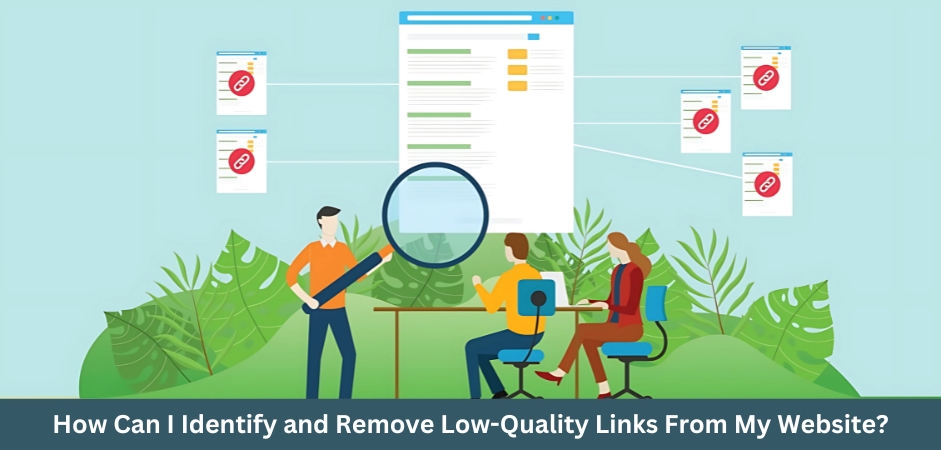
To identify and remove low-quality links from your website, start by using SEO tools like Ahrefs, Moz, or SEMrush to conduct a backlink audit.
These tools help flag potentially toxic links by analyzing metrics such as domain authority, anchor text patterns, and the domain rating of linking sites. Look for links from spammy websites, sites with low authority, or those using unnatural anchor text.
Once identified, compile a list of these links.
Next, attempt to remove these links by contacting the website owners and requesting removal. If this is not possible, use Google’s Disavow Links tool to submit a list of these low-quality links for Google to ignore.
This process helps protect your site’s SEO efforts by ensuring that spammy links do not negatively impact your link profile. Regularly auditing your backlink profile is important for maintaining a healthy SEO strategy and avoiding penalties from search engines like Google.
Common Mistakes to Avoid in Link Building
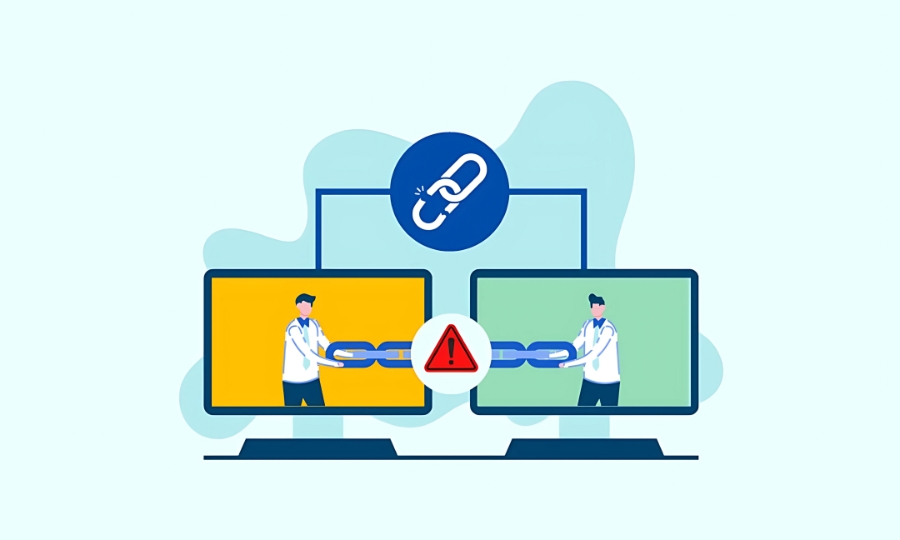
Link building is very important, but it can be risky if you are not careful.
Overuse of Manipulative Tactics
Using manipulative tactics in link building can lead to serious penalties from search engines like Google.
These tactics often involve creating links solely to manipulate search engine rankings rather than providing value to users. Examples include using automated software to generate links, participating in private blog networks, and posting links on low-quality article directories.
Such practices can result in a temporary boost, but they ultimately harm your site’s reputation and may lead to being demoted or removed from search results.
Ignoring Relevance and Context
Relevance is important in link building because it ensures that the links are contextually appropriate and beneficial to users. When links are irrelevant or out of context, they can confuse readers and degrade the user experience.
For instance, a link about car maintenance in an article about coffee beans is irrelevant and likely to frustrate users. Search engines prioritize relevant links because they enhance the credibility and authority of a website within its niche.
Ignoring this can lead to poor engagement and lower rankings.
Excessive Focus On Quantity Over Quality
Focusing too much on the number of backlinks rather than their quality can be detrimental.
While having many links might seem beneficial, links from spammy websites or sites with low domain authority can harm your SEO efforts. Quality backlinks from reputable sites are more valuable as they improve your site’s authority and trustworthiness.
A strategy that emphasizes quantity over quality risks accumulating low-value links that do not contribute positively to your SEO goals. Balancing quality with quantity is essential for sustainable SEO success.
Should You Hire a Professional to Develop High-Quality Links?
Hiring a professional for link building can be a smart move, especially if you lack the time or expertise to handle it yourself. Professionals bring valuable experience and can develop a strategic link-building strategy tailored to your business needs.
They have access to networks and resources that might not be available to you, helping secure high-quality backlinks from authority sites. Additionally, they stay updated with Google’s guidelines, ensuring that your link-building efforts are ethical and effective.
For startups and businesses looking to scale effectively, VH Info offers specialized SEO for Startup solutions, ensuring tailored strategies that align with your growth objectives.
How Can I Assess the Value of a Link?

To assess the value of a link, consider factors like the linking site’s domain authority, relevance, and the context in which the link appears.
Use SEO tools like Ahrefs or Moz to check the site’s metrics, such as its domain rating and spam score. A valuable link typically comes from a site related to your industry and is placed naturally within valuable content.
Also, evaluate the anchor text used, ensuring it is relevant and not overly optimized. High-value links contribute positively to your site’s SEO by enhancing its credibility and visibility in search results.
Do No-Follow Links Provide Any Value?
Yes, no-follow links can still provide value even though they don’t pass link juice directly.
These links can drive traffic to your site, increase brand awareness, and improve your overall online presence. They are often found in places like comments sections or social media platforms where users discuss your content.
While they may not directly impact your search rankings, they contribute to a diverse link profile and can lead to natural link-building opportunities as more people discover and share your content.
How Does the Quality of a Link Affect User Experience?
The quality of a link significantly affects user experience by guiding users to relevant and trustworthy resources. High-quality links enhance credibility, making users more likely to trust the information on your site.
When users click on a link expecting valuable information but find irrelevant or low-quality content instead, it can lead to frustration and reduced engagement.
Ensuring that links are contextually appropriate and lead to reputable sites helps maintain user trust and encourages longer site visits, which can positively impact your SEO efforts.
Are There Any Tools or Techniques For Analyzing the Quality of a Link?

Several tools can help analyze the quality of a link, such as Ahrefs, Moz, and SEMrush.
These tools provide insights into metrics like domain authority, page authority, and spam score, helping you evaluate potential link opportunities effectively. Techniques include checking the contextual relevance of the linking page’s content and examining the anchor text used.
Regularly auditing your backlink profile with these tools ensures that you maintain high standards for link quality and avoid potential penalties from search engines.
Best Practices For Building High-Quality Backlinks
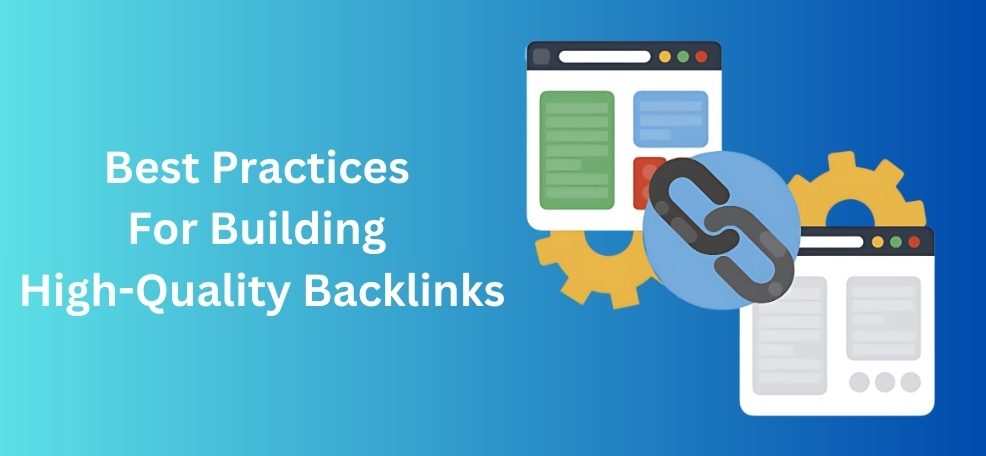
- Create Great Content: Focus on producing high-quality, informative, and engaging content that naturally attracts links from reputable websites. When your content provides valuable information or insights, other sites are more likely to link to it as a valuable resource, enhancing your site’s credibility and authority.
- Engage in Guest Posting: Write guest posts for relevant blogs within your industry. This not only helps you gain exposure to a new audience but also secures high-quality backlinks from authority sites. Ensure that your guest posts are well-written and provide genuine value to the host site’s readers.
- Utilize Broken Link Building Techniques: Identify broken links on reputable sites related to your niche and offer your content as a replacement. This technique helps site owners fix broken links while providing you with an opportunity to earn a backlink. It’s an effective way to build links while helping others improve their sites.
- Build Relationships with Industry Influencers: Networking with influencers in your industry can lead to organic link opportunities. When influencers share or link to your content, it can significantly boost your site’s visibility and authority. Building genuine relationships can also open doors for collaborations and further link-building prospects.
- Regularly Audit Your Backlink Profile: Use tools like Ahrefs or Moz to conduct regular audits of your backlink profile. This helps ensure that your links are from high-quality sources and comply with Google’s guidelines. Maintaining a clean and authoritative link profile helps protect your site from potential penalties and supports sustainable SEO success.
FAQ’s:
What Makes a Backlink High Quality?
A high-quality backlink typically comes from a reputable website with high domain authority.
It should be contextually relevant, meaning the content of the linking page is related to your site’s content. Additionally, the link should be placed naturally within the text, not forced or in irrelevant sections.
The anchor text used should also be relevant and varied to avoid appearing manipulative. These factors together help enhance your site’s credibility and improve its ranking in search results.
How Often Should I Audit My Site’s Backlink Profile?
The frequency of auditing your site’s backlink profile depends on several factors such as site size, update frequency, and potential risks.
For most sites, a quarterly audit is sufficient to maintain a healthy link profile. However, if your site is large or frequently updated, consider monthly audits to quickly address any issues with low-quality links or changes in domain authority.
Regular audits help ensure compliance with Google’s guidelines and protect against potential penalties.
Can the Quality of a Link Affect the Loading Speed of a Webpage?
The quality of a link itself does not directly affect the loading speed of a webpage.
However, if a page has numerous outbound links leading to resource-heavy sites, it could impact performance indirectly by increasing load times when users navigate away.
Ensuring that linked pages are optimized for speed can help maintain a positive user experience and reduce bounce rates. Fast-loading sites generally perform better in search rankings and conversion rates.
How Many Quality Links Do I Need For SEO Success?
The number of quality links needed for SEO success varies by industry and competition level. Generally, having 300-500 high-quality backlinks can significantly boost rankings for most niches.
For local businesses with less competition, 20-30 quality links might suffice. The focus should be on acquiring links from authority sites that are relevant and provide genuine value rather than just aiming for high numbers. Quality often outweighs quantity in effective SEO strategies.
Conclusion
Building quality links is an essential aspect of any successful SEO strategy.
Focusing on creating valuable content, engaging in ethical outreach, and maintaining a diverse yet relevant backlink profile can significantly enhance your site’s authority and visibility.
VH Info stands ready as your trusted partner in navigating these complexities with expertise tailored for SaaS businesses.

